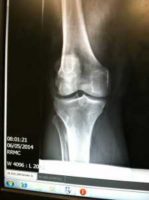Author Interviews, Opiods, Rheumatology / 12.11.2019
Researchers Question Value of Opioids in Osteoarthritis Treatment
MedicalResearch.com Interview with:
Raveendhara R. Bannuru MD, PhD, FAGE
Director, Center for Treatment Comparison and Integrative Analysis (CTCIA)
Deputy Director, Center for Complementary and Integrative Medicine (CCIM)
Asst Professor of Medicine, Tufts University School of Medicine
Asst Professor of Clinical & Translational Science, Sackler School of Graduate Biomedical Sciences
Division of Rheumatology, Tufts Medical Center
Boston, MA
MedicalResearch.com: What is the background for this study?
Response: Given the current controversy regarding the use of opioids in chronic pain, we wanted to delve deeper into the efficacy and safety profiles of oral opioid drugs in osteoarthritis patients. Temporal assessments like ours can reveal peak periods of efficacy, and can provide clinicians with a blueprint for optimal durations of treatment regimens. With respect to subgroup analyses based on strength of opioid binding affinity, we sought to explore currently held paradigms that strong opioids may be useful for the treatment of severe pain, and to specifically assess their relevance in OA populations. Knowledge of the relative efficacy and safety profiles of strong versus weak opioids can give clinicians the information they need to weigh benefits and harms of specific subgroups of opioids. (more…)





